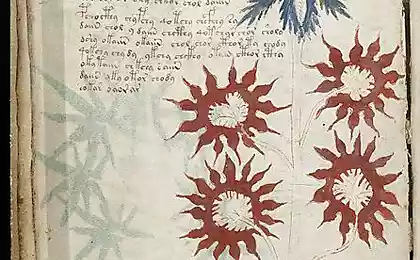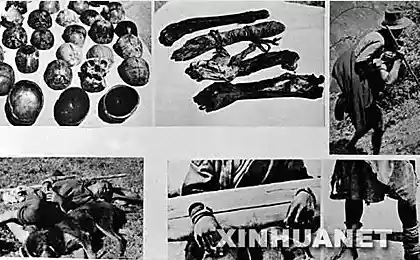495
Servant of God: the metamorphosis of the meaning of the word

Green willow on the marsh,
The willow is attached a rope,
On the rope in the morning and evening
Walks in a circle scientist boar.
(translated into Polish Russian version of Pushkin's poem "there stands a green oak...")
Many, even sincere Christians sometimes warps the word "slave" which call them in the Church. Someone is not paying attention to it, others find a reason to get rid of pride, others pose questions to priests. What really is this concept? Can, it and did nothing offensive?
The meaning of the word "ruby"
Of course, the Bible was written in the days when language and meaning of the words was quite different, in addition, also transferred many times from one language to another. It is not surprising if the meaning of the texts was distorted beyond recognition. Maybe the word "slave" had a quite different content?
According to Church Slavonic dictionary FR. Diachenko concept of "ruby" has several meanings: dweller, inhabitant, servant, slave, servant, son, daughter, boy, lad, young slave, servant, apprentice. Thus, this interpretation gives hope "God's servants" the preservation of human dignity in his Christian virtues: they are also a son or daughter, and student, and a resident of the world created by God.
Remember also the social structure of those times: slaves and the children of the owner of the house lived, by and large, equal. Children are also in no way could stand up to his father, the slaves were, in fact, members of the family. The same situation was and the disciple, if the master of any craft took him into the service.
Maybe "Rob"?
Writes the Agatha Logofatu, referring to the etymological dictionary Vasmer, the word "slave" was borrowed from Church Slavonic and in old Russian it was in the form "Rob", "robya", where it is still found in some dialects the plural of "robyaty". In the future, the root "Rob" became "REB" the origin of the modern "child", "children", etc.
Thus, again we come back to that a devout Christian is a child of God and not a slave in the modern sense of the word.
Or "Raab"?
The already mentioned dictionary Dyachenko includes another meaning: "Raab or ruby – the name of the Jewish teachers, the same as a Rabbi." "Rabbi" comes from the Hebrew "Rabbi," which, according to Collier's dictionary, means "my Lord" or "my teacher" ("Rabbi" — "great", "Mr." — and the pronominal suffix "-I" "my").
Sudden increase, isn't it? Perhaps the "servant of God" — a teacher, a bearer of spiritual knowledge, designed to convey to his people? In this case, it will only agree with the phrase hieromonk job, in the world Athanasius Gumerov (that said, however, initially in a slightly different context): "the Right to be called a servant of God must be earned".
Modern language
One thing is certain: the way of life and mentality of people at that time too different from ours. Another was, of course, language. Therefore, for a Christian of that era was not a moral issue to call himself a "slave of God", nor was this exercise for getting rid of the sin of pride.
Sometimes parishioners on the forums suggest: "...if the Bible was translated many times, and the meaning of the word "slave" in that time has changed, why not replace it with a more appropriate by value?". Voiced, for example, a "Minister." But, in my opinion, a much better word "son" or "daughter" or "disciple of God". Besides, according to the Church Slavonic dictionary, this is also the meaning of the word "ruby".
Instead of a conclusion. A little humor about the metamorphosis of the concepts
The young monk was given the task to help the rest of the Ministers of the Church to rewrite the sacred texts. After working as a week, a brand new noticed that the copy is not the original and another copy. He expressed his surprise to his father -Abbot: "Father, if someone made a mistake, it will be repeated after that in all instances!". The Abbot, thinking, went down to the dungeons where they kept the primary sources and... gone. When it took almost a day since his disappearance, concerned about the monks went down after him. They found him at once: he hit his head on the sharp stones of the walls and with a mad look shouted: "Celebrate!!! The word was “celebrate”! And not "celibate"!".
(Note: celebrate (English). – to celebrate, to praise, to glorify; celibate (English). — celibate; celibacy) published
Author: Paul Thun
Source: ierofanta.net/rab-bozhiy-o-metamorfozah-znachenia-slova.php
Women the Real and Unreal: a comparative analysis
It is worth seeing! Fantastic bike Parking in Japan























